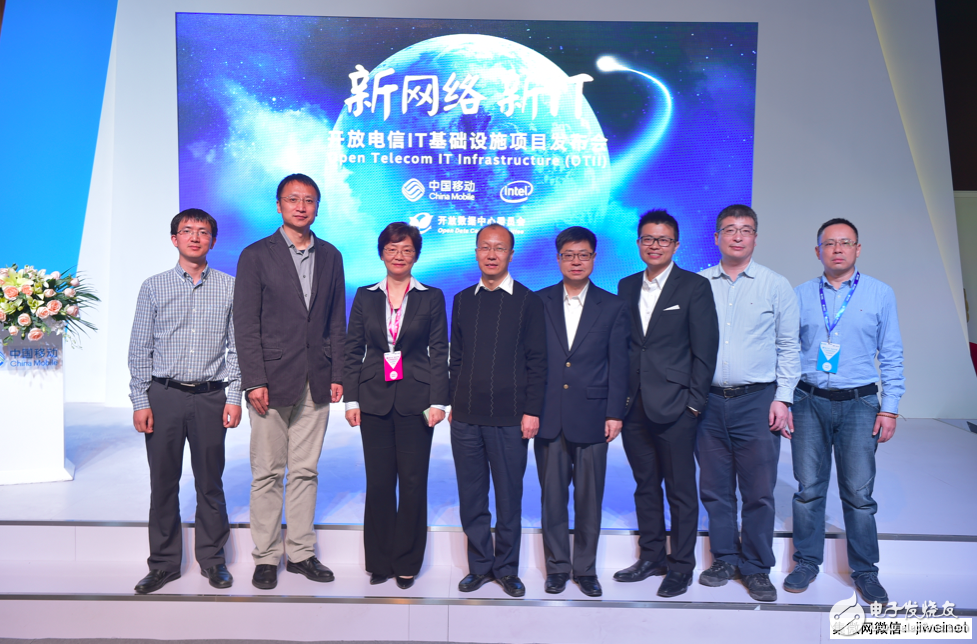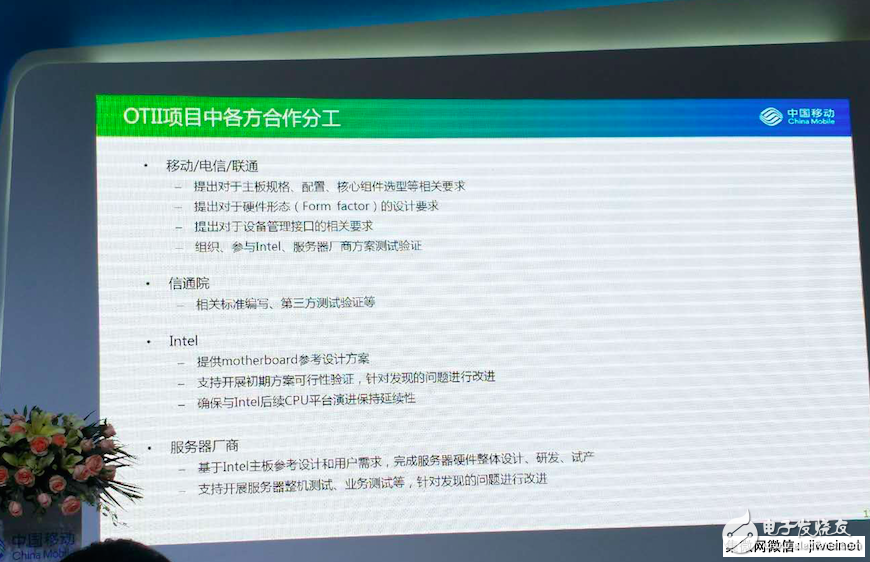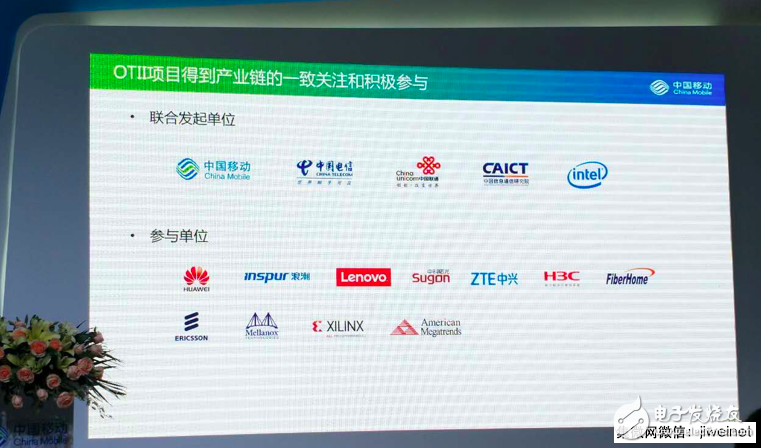At the "2017 China Mobile Global Partner Conference" held in Guangzhou, China Mobile and Intel Corporation officially announced the launch of OTII (Open Telecom IT Infrastructure) for OTCC (Open Data Center Committee), aimed at supporting telecom applications. This initiative marks a significant step towards building an open, standardized server solution tailored for the telecommunications industry.

As global operators navigate through rapid network transformation, the shift from traditional networks to NFV (Network Function Virtualization) based on general-purpose servers and open-source cloud platforms has become a common goal. This transition aims to enhance network efficiency, reduce costs, and meet the growing demand for scalable and flexible infrastructure.
Despite the progress, the implementation of NFV is still in its early stages. The challenge lies in aligning IT-based telecom applications with the specific needs of the industry, including server performance, reliability, and compatibility. This has sparked widespread interest among operators, server manufacturers, and telecom equipment providers.
In response to this need, China Mobile, along with China Telecom, China Unicom, and Intel, launched the OTII project under the Open Data Center Committee (ODCC). The initiative seeks to develop a unified, open-standard server solution that supports the telecom industry’s IT transformation, focusing on customization, scalability, and interoperability.
According to technical experts from China Mobile and Intel, the OTII project is designed to address future operator network IT requirements. It incorporates technologies such as network acceleration, NUMA balancing, and standardized hardware BIOS settings. By unifying core components and device management interfaces, the project aims to improve server performance, stability, and deployment efficiency, ultimately enhancing the support for next-generation telecom services.
The OTII project has established clear responsibilities across four key areas:

As end users, China Mobile, China Telecom, and China Unicom are leading the requirements, defining motherboard specifications, configurations, component selection, and management systems. Their input ensures the solution meets real-world operational needs.
The Institute of Information and Communications acts as a third-party organization, responsible for writing standards and conducting independent testing to ensure quality and compliance.
Intel, as the x86 chip provider, contributes by designing motherboards and verifying feasibility, continuously refining the design to align with future CPU platform evolution.
Server manufacturers then take the reference designs and user requirements to develop, prototype, and mass-produce the final server solutions.
The OTII project has been officially recognized by ODCC and has received positive feedback from member companies. Over ten major firms, including Huawei, Inspur, Lenovo, and others, have joined the initiative, signaling strong industry support. More manufacturers are expected to participate in the future.

Yang Zhiqiang, Vice President of China Mobile Research Institute, expressed gratitude to Intel for its long-term partnership. He emphasized that their collaboration spans multiple fields, including IT infrastructure, cloud computing, NFV, 5G, and IoT. He believes that China Mobile's deep understanding of network transformation combined with Intel’s technical expertise will significantly contribute to the project’s success.
Du Weiyang, Director of Asia Market Development at Intel Network Platforms, highlighted that Intel and China Mobile have maintained close technical cooperation in IT, cloud computing, and data centers. The OTII project represents the latest effort to advance network and cloud transformation for NFV. With strong technical capabilities and a robust ecosystem, Intel is committed to working closely with operators and suppliers to drive the future of network innovation.
Dr. He Baohong, Vice Chairman of ODCC and Deputy Director of the Cloud Computing and Big Data Research Institute, emphasized that the transformation of data centers into critical nodes has become an industry consensus. The pace of network reconfiguration directly impacts the survival of operators. If carriers fail to keep up with the speed of Internet vendors, the value of their network infrastructure could be lost. ODCC fully supports OTII and encourages broader industry participation, aiming to make it a globally influential project.
In conclusion, the OTII project marks a new era in the telecom industry’s IT-driven transformation. With the joint efforts of China’s three major operators, Intel’s strong backing, and active industry participation, the project holds great potential to shape the future of both China’s and the global telecommunications landscape. Its impact is certainly worth watching.
Normal Electric Test Pen,Screw-Driver With Voltage Tester,Combination Screw Driver Set With Tester,Voltage Detector Tester
YINTE TOOLS (NINGBO) CO., LTD , https://www.yinte-tools.com